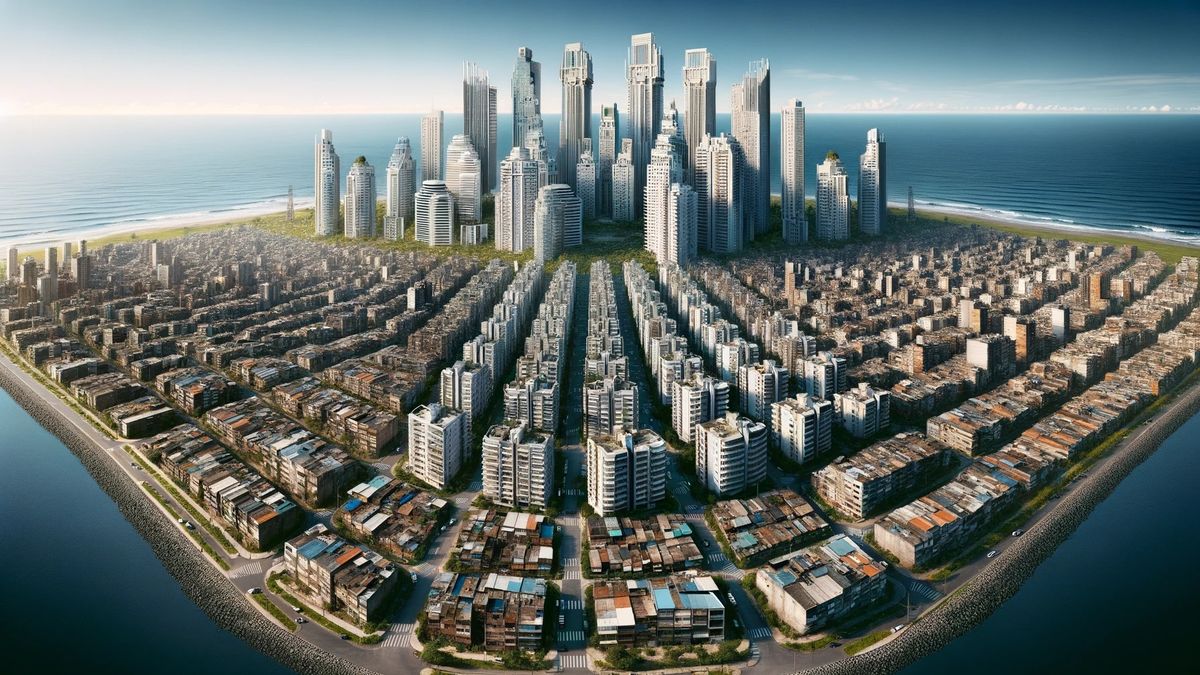The Promoted Housing Lawalso known as the Social Interest Housing Law, has been a fundamental pillar in the urban and social development of Uruguayoffering a legal framework that facilitates access to affordable housing through tax incentives for developers.
Its existence has transformed the real-estate market of the country, promoting greater equity in access to housing. However, the exploration of a hypothetical scenario without this law reveals the profound consequences that its absence would have had on multiple aspects of Uruguayan society.
Uneven urban development
The lack of the Promoted Housing Law would have exacerbated the inequality in urban development, especially in Montevideo and other major cities. The gentrification would have relegated the middle and working class to the peripheries, making access to basic services and job opportunities difficult, and concentrating real estate ownership in the hands of a few.
Housing accessibility crisis
The absence of affordable housing policies would have deepened an accessibility crisis, with real estate prices reaching prohibitive levels for the majority. This would have aggravated the gap generational and economic, turning home ownership into an unattainable dream for many Uruguayan families.
Economic and labor market impact
Investment in the real estate sector would have suffered stagnation, negatively affecting job creation and the economic dynamics related to construction and related sectors. The difficulty of accessing housing in central urban areas would have forced long trips, increasing transportation costs and affecting the quality of life of workers.
Increased social vulnerability
Equity in access to housing is essential for a less vulnerable society. Without the law, problems such as poverty, overcrowding and housing insecurity, disproportionately affecting families in vulnerable situations and limiting their opportunities for socioeconomic progress.
Challenges for urban sustainability
Urban sustainability would have faced significant challenges, missing the opportunity to promote eco-friendly construction practices and energy efficiency. This would have resulted in less sustainable and more environmentally damaging development.
The Promoted Housing law is an engine of change and equity
With this article, we highlight the critical importance of inclusive and progressive public policies such as the Promoted Housing Law for sustainable development, social equity and urban cohesion in Uruguay. The absence of it would have resulted in a less equitable real estate market and a society marked by greater socioeconomic inequalities and vulnerabilities.
The law has not only helped balance the housing needs of the population with the interests of investors, but has also promoted inclusive and sustainable growth. Ultimately, the future of Uruguay and its development depends on the continuity and strengthening of these public policies, demonstrating the relevance of a continued commitment of all social and political actors to fully materialize their benefits.
The effects of the law: the reality
According to data provided by the National Housing AgencyIn the 12 years since the law was enacted, 1,540 projects have been submitted to build 39,199 homes and 16,470 garages.
Analysis developed by Moebius Real Estate Consulting indicates that the investment made to build the 1,540 projects is around 3.5 billion dollars. These figures not only reflect the volume of the constructive response to housing demand, but also underline the magnitude of private investment in the sector, marking a milestone in the urban and social development of the country.
* Gonzalo Martínez Vargas is CEO of Moebius Real Estate Consulting.
Source: Ambito




